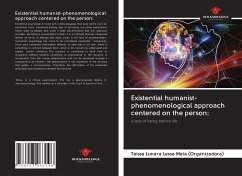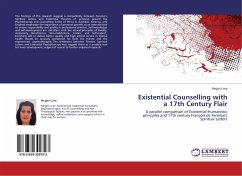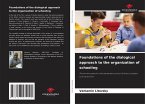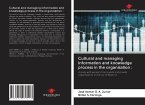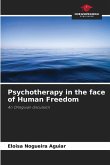Existential psychology is faced with a daily language that uses terms such as: existential crisis, existential anxiety, fear of not being, are some expressions freely used by people who show a wide dissemination that this approach provides. Not being a psychological school, it is an attitude that has influenced almost all forms of therapy that have arisen in the face of psychoanalysis, humanistic psychology has come to be considered existential - humanistic. Since each existential philosopher defends an idea that is his own, there is something in common between them, which is the concern to understand and explain human existence. The essence is something in itself (real or imaginary) without needing something to characterize it, the essence is inseparable from the human phenomenon and can be perceived through a transparency by intuition. The phenomenon is the manifesto of the essence that guides a consciousness. Therefore, the affirmation of the existential philosophy that existence precedes the essence.
Hinweis: Dieser Artikel kann nur an eine deutsche Lieferadresse ausgeliefert werden.
Hinweis: Dieser Artikel kann nur an eine deutsche Lieferadresse ausgeliefert werden.

